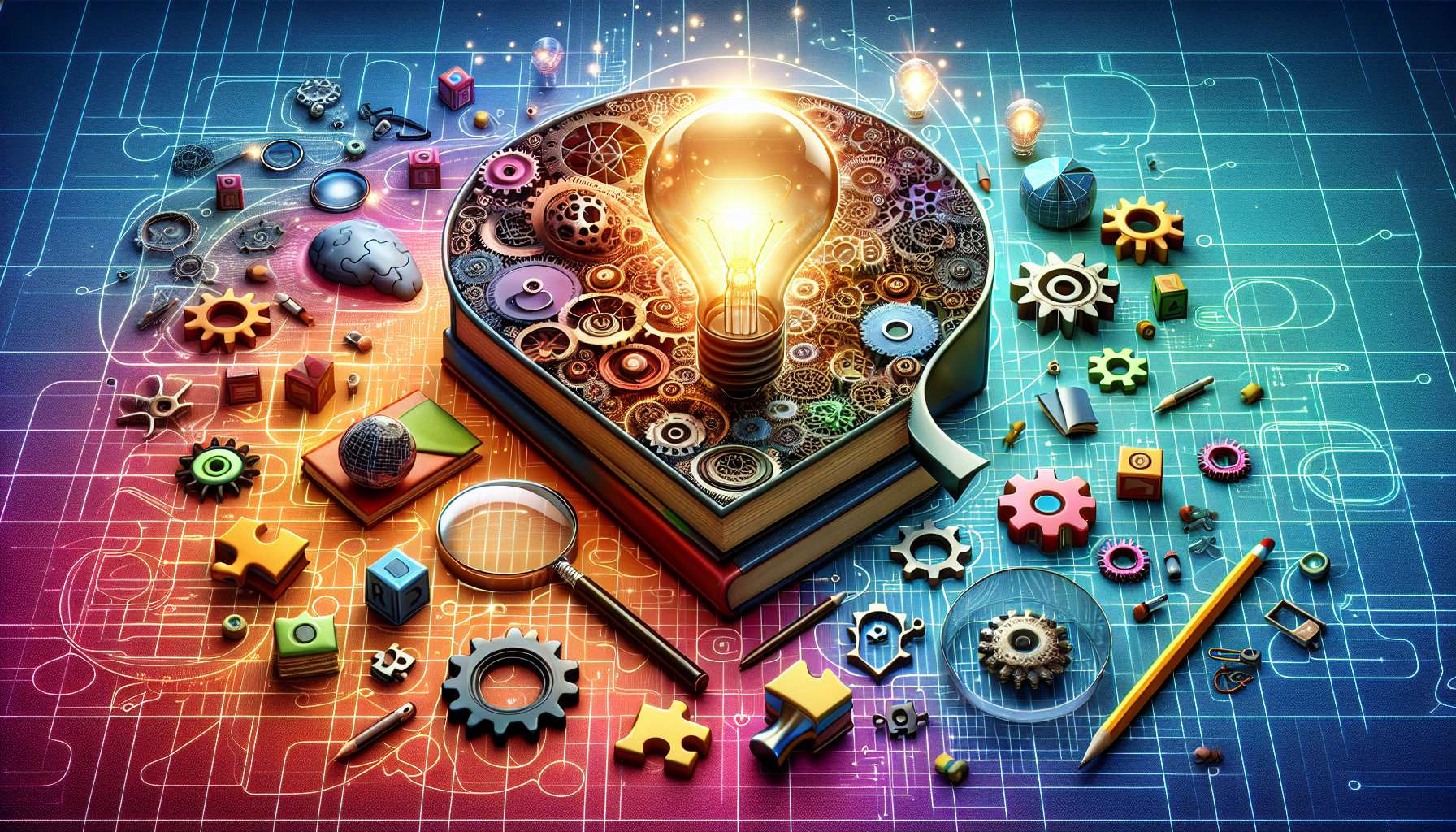Unlocking the Power of Knowledge Essentials
Welcome to a world where knowledge is not just power but also the key to success, growth, and innovation. In today’s fast-paced and ever-changing landscape, the ability to harness, create, and utilize knowledge effectively has become more crucial than ever. From individuals seeking personal development to organizations striving for competitive advantage, understanding the essentials of knowledge is essential. Join us on a journey as we delve into the depths of ‘Knowledge Essentials’, exploring its significance, applications, and impact on various domains.
The Foundation of Knowledge
At its core, knowledge is the information, skills, and expertise acquired through experience, education, and observation. It serves as the foundation for decision-making, problem-solving, and creativity. In the digital age, where information is abundant but wisdom is scarce, the ability to filter, analyze, and apply knowledge effectively is a valuable asset. The essentials of knowledge encompass not only what we know but also how we acquire, store, and share information.
One of the key components of knowledge essentials is the distinction between explicit and tacit knowledge. Explicit knowledge is codified, documented, and easily transferable through books, manuals, and databases. On the other hand, tacit knowledge is personal, experiential, and often difficult to articulate. It resides in the minds of individuals and is developed through practical experience and intuition. Understanding the interplay between these two forms of knowledge is essential for fostering a learning culture and promoting innovation.
The Value of Knowledge Management
Knowledge management is the systematic process of creating, capturing, sharing, and using knowledge to enhance organizational performance. It involves the development of strategies, processes, and technologies to facilitate knowledge creation, dissemination, and utilization. By leveraging knowledge management practices, organizations can streamline operations, foster collaboration, and drive innovation.
One of the key benefits of knowledge management is the ability to transform individual knowledge into collective wisdom. By capturing and sharing best practices, lessons learned, and expertise across the organization, knowledge management enables teams to make informed decisions, solve complex problems, and adapt to changes effectively. Moreover, knowledge management enhances organizational memory, ensuring that valuable information is preserved and accessible to future generations.
Knowledge Essentials in the Digital Age
In the era of big data, artificial intelligence, and machine learning, the role of knowledge essentials has evolved significantly. Organizations are increasingly relying on data-driven insights, predictive analytics, and automation to drive decision-making and improve performance. The ability to extract actionable knowledge from vast amounts of data is a critical skill for professionals across industries.
Furthermore, the rise of knowledge graphs, semantic technologies, and natural language processing has enabled advanced knowledge representation and reasoning. These technologies allow organizations to model complex relationships, infer new insights, and personalize user experiences. By harnessing the power of knowledge graphs, companies can uncover hidden patterns, optimize processes, and enhance decision-making.
Knowledge Essentials in Education
Education plays a vital role in shaping individuals’ knowledge, skills, and attitudes. The essentials of knowledge in education encompass a broad range of disciplines, including curriculum development, pedagogy, assessment, and lifelong learning. By integrating knowledge essentials into educational practices, teachers can empower students to become critical thinkers, problem solvers, and lifelong learners.
One of the key challenges in education is the gap between academic knowledge and real-world application. By promoting experiential learning, project-based assignments, and industry partnerships, educators can bridge this gap and prepare students for the challenges of the 21st century. Moreover, by leveraging digital tools, online resources, and interactive platforms, educators can create engaging and personalized learning experiences for students.
Knowledge Essentials in Healthcare
In the healthcare industry, knowledge essentials are critical for ensuring patient safety, quality of care, and clinical outcomes. Healthcare professionals rely on evidence-based practice, clinical guidelines, and medical research to make informed decisions and deliver effective treatments. By staying abreast of the latest developments in medical science, healthcare providers can enhance their diagnostic accuracy, treatment efficacy, and patient satisfaction.
One of the key challenges in healthcare is the proliferation of misinformation, quackery, and pseudoscience. By promoting health literacy, patient education, and evidence-based medicine, healthcare organizations can empower patients to make informed choices about their health and well-being. Moreover, by leveraging telemedicine, remote monitoring, and digital health technologies, healthcare providers can improve access to care, reduce costs, and enhance patient outcomes.
Expert Opinions
“Knowledge is not just about what you know but also how you apply it in real-world situations. By honing your critical thinking, problem-solving, and communication skills, you can leverage your knowledge effectively and make a positive impact on society.” – Dr. Jane Doe, Professor of Psychology
“In today’s knowledge economy, the ability to learn, unlearn, and relearn is critical for success. By embracing a growth mindset, staying curious, and seeking new challenges, you can adapt to changes, seize opportunities, and achieve your full potential.” – John Smith, CEO of XYZ Company
Common Misconceptions
One common misconception about knowledge is that it is static and unchanging. In reality, knowledge is dynamic, evolving, and context-dependent. By staying curious, open-minded, and willing to learn, you can expand your knowledge and enhance your understanding of the world.
Another misconception is that knowledge is solely acquired through formal education. While education plays a crucial role in shaping individuals’ knowledge and skills, learning is a lifelong process that extends beyond the classroom. By seeking out new experiences, challenging assumptions, and engaging with diverse perspectives, you can continue to grow and evolve as a person.
Conclusion
To wrap things up, knowledge essentials are the building blocks of personal and professional development, innovation, and societal progress. By harnessing the power of knowledge, individuals and organizations can unlock new opportunities, overcome challenges, and create a better future for all. As we navigate the complexities of the digital age, let us embrace the essentials of knowledge and strive to make a positive impact on the world around us.




